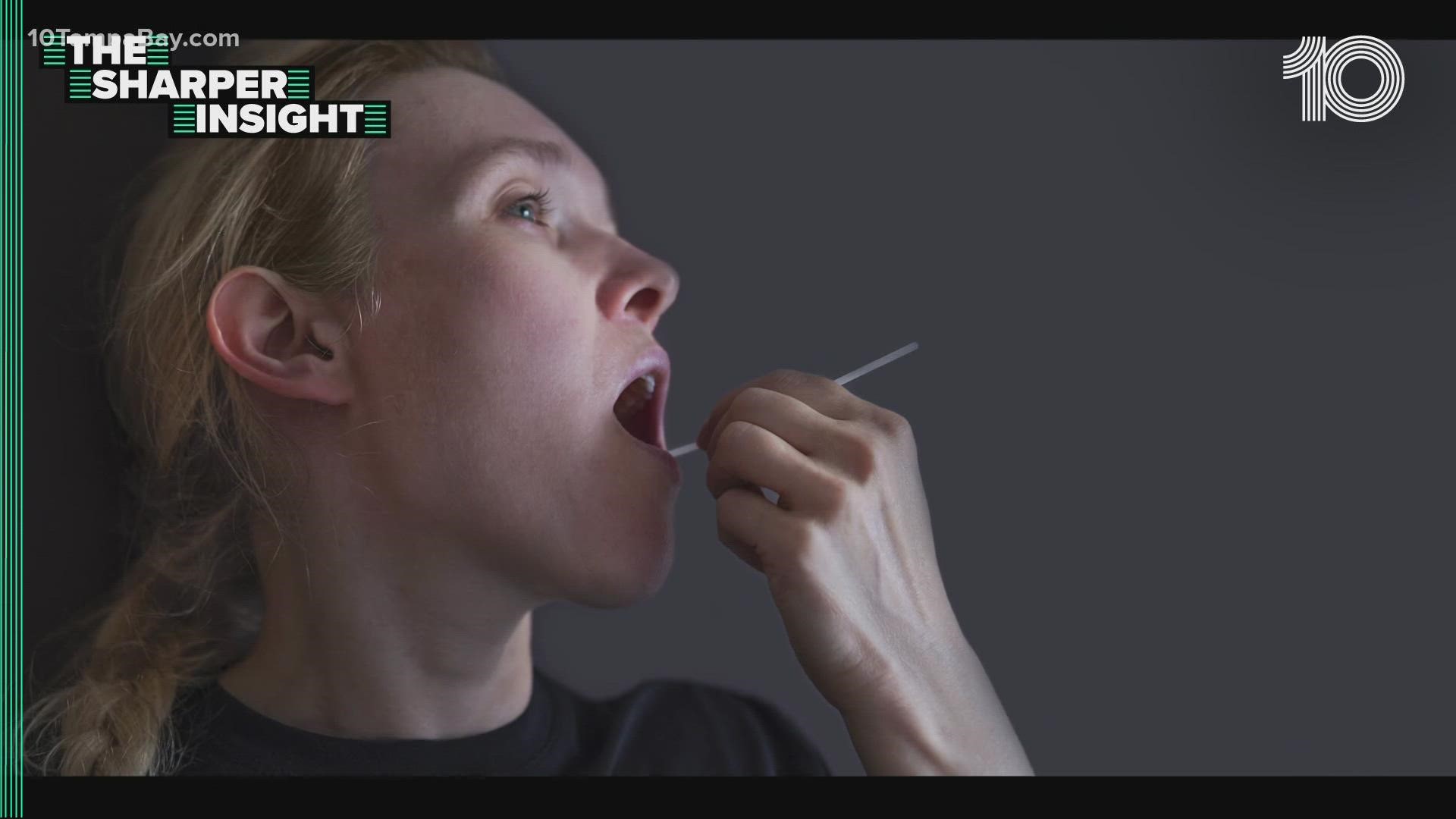ST. PETERSBURG, Fla. — Given the increase in sore throat symptoms associated with the omicron variant, some doctors suggest swabbing your throat in addition to your nose could lead to more accurate at-home test results.
Social media is filled with posts tagged #SwabYourThroat with users, including doctors and epidemiologists, reporting negative tests from a nasal swab that turned positive after adding a throat swab.
Dr. Thomas Unnasch, an infectious disease expert at the University of South Florida, explains why it's possible omicron could evade detection using the standard nasal swab.
“With the omicron variant,...saliva turns out to be better than the swabbing,” he explained. “So we're losing a bit of sensitivity there because of the fact that the samples aren't as good as they were with the other variants.”
Studies like this pre-print out of South Africa point to swabbing your throat for saliva because the omicron variant of the virus is better at attaching to the airway in your lower respiratory tract that connects your windpipe to your lungs.
Currently, all rapid tests authorized for use in the U.S. are intended for nasal swabs. But experts in the U.K. have been recommending you first swab the throat, then the inside of the nostrils.
“Symptoms are starting [very] early [with] Omicron,” Dr. Michael Mina, epidemiologist and chief science officer of eMed, a digital healthcare company, wrote on Twitter. “This means that there is a chance the virus isn’t yet growing in the nose when you first test.”
The virus might start further down, he said, so a throat and nasal swab may improve the chances the test picks up the virus.
Using the throat swab may be a great idea, concurred Dr. Jill Roberts with the USF College of Public Health, but she doesn’t recommend it yet.
“Scientifically speaking, you shouldn't do it until the tests have been verified to work in that method,” Roberts told 10 Tampa Bay in an email. “The throat has different microorganisms than the nasal passages and it is possible that false positives could increase using those methods.”
Her hesitation is echoed by the U.S. Food and Drug Administration. The federal agency is warning people to follow instructions of at-home COVID tests and only swab their noses.
“The FDA advises that COVID-19 tests should be used as authorized, including following their instructions for use regarding obtaining the sample for testing,” a spokesperson for the FDA told 10 Tampa Bay in an email.
“The FDA has noted safety concerns regarding self-collection of throat swabs, as they are more complicated than nasal swabs — and if used incorrectly, can cause harm to the patient.”
The CDC recommends throat swabs be collected by a trained healthcare provider, the spokesperson went on to write.

